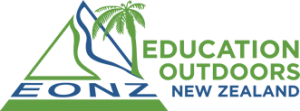Te Whakatika
Te Whakatika[1] – The Aotearoa New Zealand Professional Practice Journal for Outdoor and Environmental learning.
An Exciting New Journey for Te Whakatika – A Call for Papers
Contributions: Get inspired – looking forward to the March/April 2024 issue of Te Whakatika.
This is a call for contributions to Te Whakatika Autumn Issue March/April 2024
With a commitment to two issues a year, we are already thinking about articles for our Autumn issue for March/April 2024. The focus will be on general interest articles about learning, teaching, researching, and enjoying the outdoor environment at all levels.
- In this spirit, we invite contributions from the NZAEE and EONZ communities. Your article may provide diverse perspectives on how you and others are learning in, about, for, and with the outdoors. We would also like at least 3 good quality photographs that you have permission to use to support and add interest to your writing. Each photograph needs a brief title with a separate reference for the source of the photograph
- If you have any questions or would like assistance with a potential article idea, please reach out to the editor or one of the editorial board members.
Guidelines for writing
- Word count between 600 to 1500 words long with a limitation of five to six references. We would also like you to include photographs or other illustrations to support your article. These must be photos that you have permission to use in the public domain.
- Use of Māori in text – Does not need to be italicised as it is not a foreign language. Do not mark plurals of Māori with an s. Use macrons on long vowels or a double vowel.
- Format for copy submission e.g. Microsoft word, Adobe PDF
- Manuscript is double spaced in A4 format
- Format for references is APA style https://www.waikato.ac.nz/library/guidance/referencing/apa
- Submit via the EONZ website or a link to EONZ from the NZAEE website or directly to editor@eonz.org.nz
- Once your submission has been received the editor will email it to a reviewer who will check out the article. They may give feedback and return the article to the editor. The editor checks the feedback and forwards it to the author to consider and rewrite aspects if that is required. The author then returns the article to the editor who prepares it for publication.
Ngā mihi ki a koutou.
Dr Maureen Legge
Editor Te Whakatika
editor@eonz.org.nz
[1] Te Whakatika (formerly known as Out and About) describes the start of a journey (to set out), but also means to make correct (to amend and prepare).
ISSN 2624-0513 (Print) ISSN 2624-0512 (Online) is published by Education Outdoors New Zealand (EONZ).
For back copies of Te Whakatika, please see our archives page here
Related information
- Classroom, Curriculum & Assessment
- Learning Activities for KIWI Outdoors in Aotearoa
- Junior Outdoor Education
- Haerenga (Journeys)
- Outdoor Education programme interviews.
- EOTC Conference 2020
- EOTC Research
- Good Practice Stories
- Publications
- Revisioning School Camps
- Sustainability
- Te Ao Māori
- Te Whakatika
- Journal of Outdoor and Environmental Education
- Unit Standard Assessment Resources
- Embracing Uncertainty Conference (EONZ, NZHEA, PENZ) 2021


